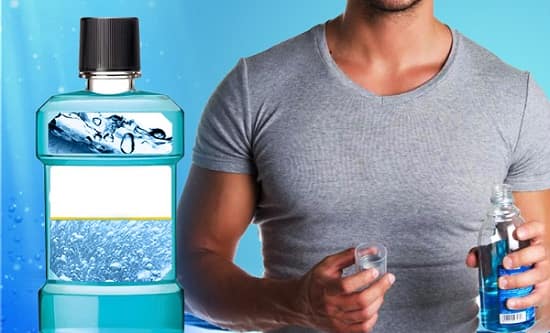The use of mouthwash has seen a significant rise in recent years. The main reason for its popularity is the benefits it offers to users. From herbal blends to everyday formulas, there is a mouthwash for all.
Like any other product, along with advantages, there are also disadvantages in using mouthwash. This article will list out both pros and cons to help make an informed decision.

Advantages of using mouthwash
- Combats cavities
Bacteria in your mouth can cling to the teeth, which is the main cause of decay. A good mouthwash can help to remove the bacteria. Otherwise, the enamel can get eroded and cause cavities.
- Maintains the gum’s health
The presence of bacteria causes inflammation and diseases in the gums. Since the bacteria is now gone due to the mouthwash, it will remain healthy.
- Whitens teeth
The teeth stains are easily removed when you used mouthwash. Overall, your teeth will get a whiter appearance.
- Helps with after-surgery treatment
Doctors prescribe certain mouthwashes to help the patient post-surgery. These help to cure sores and inflammation that is due to dental surgery. Since they cannot brush their teeth after the surgery, the mouthwash formulas help them.
- Soothes canker sores
Mouth ulcers are canker sores that can cause quite a deal of discomfort. Because mouthwashes deal with the bacterial infection, it prevents further development of these sores. Plus, it also helps to heal the present painful sores.
- Avoid pregnancy complications
Periodontal disease can cause premature labour in pregnant women. This is because when the bacteria enter the mother’s blood, it starts a series of reactions that stimulate the contractions. This bacteria enters from the mouth – and you can avoid it by using mouthwash.
Disadvantages of using mouthwash
- Causes harm if ingested
Care should be taken when using mouthwash. If swallowed, it can cause serious problems. This is especially true for children. Only in the case of dentist prescription should children below the age of 12 can use mouthwash.
- Can cause a burning sensation
Mouthwashes can cause a burning sensation if they have high alcohol in them. This is because high alcohol can irritate the soft mucus layers present in the mouth.
- Reaction with food additives
As you know, there are many chemicals in mouthwash and in the food that everyone eats. The mouthwash chemicals can react with the food additives you eat. This reaction can cause darkening or staining on the teeth.
- Wrong mouthwash irritates canker sores.
As previously seen, mouthwash can heal canker sores. But The condition of the sores can worsen if the level of alcohol is high. That is why you need to pay attention to the alcohol content level in the product.
- Temporary solution for bad breath
You can hide the bad breath with mouthwash. But only for a short period. It cannot help with oral problems. Also, mouthwash is not a substitute for brushing the teeth.
- Causes dry mouth
Use of mouthwashes with alcohol in them can cause dry mouth. This leads to cavities, tooth sensitivity, and bad breath.
- Tooth sensitivity
Dryness due to the use of mouthwash causes tooth sensitivity. This happens because of the absence of saliva, which leaves the teeth unprotected and bare. This occurs when you excessively use mouthwash.
Depending on how you use the mouthwash, it can be beneficial or harmful to you. That is why you need to consult a dentist before getting a mouthwash for you. Remember, mouthwash is not a substitute for brushing but helps with maintaining oral hygiene.
Mouthwash Frequently Asked Questions
Here are some frequently asked questions (FAQs) about mouthwash:
Q. What is mouthwash used for?
Ans: Mouthwash is used for various purposes, including freshening breath, reducing plaque and gingivitis, killing bacteria that can cause tooth decay and gum disease, and helping to prevent bad breath.
Q. How do I use mouthwash?
Ans: Mouthwash is typically used by rinsing your mouth with it for 30 seconds to 1 minute, then spitting it out. It is recommended to use mouthwash after brushing your teeth, but before flossing.
Q. Is mouthwash effective in killing germs?
Ans: Yes, many mouthwashes contain active ingredients such as alcohol, hydrogen peroxide, or chlorhexidine that have been shown to be effective in killing germs and bacteria in the mouth.
Q. Can I drink mouthwash?
Ans: No, mouthwash is not intended to be swallowed and is not safe to drink. Swallowing mouthwash can be harmful and cause serious health problems, including vomiting, diarrhea, and chemical burns.
Q. How often should I use mouthwash?
Ans: The frequency of using mouthwash will depend on the type of mouthwash and the reason for using it. Some mouthwashes may be used daily, while others may only be used a few times a week. It is important to follow the manufacturer’s instructions and consult with a dentist or healthcare provider for personalized recommendations.
Q. Are there any side effects of using mouthwash?
Ans: Some people may experience temporary side effects such as a burning sensation in the mouth, increased sensitivity of the teeth, or an upset stomach. It is important to follow the manufacturer’s instructions and not overuse mouthwash, as this can lead to these or other side effects.
Q. Can mouthwash replace brushing and flossing?
Ans: No, mouthwash should not replace brushing and flossing, which are essential for maintaining good oral hygiene. Mouthwash can complement brushing and flossing, but it is not a substitute for these activities. It is important to maintain a routine of brushing, flossing, and using mouthwash to maintain optimal oral health.
Related Topics
- Treadmill Advantages and Disadvantages You Should Know
- Electric Kettles Advantages and Disadvantages
- Air Fryer Advantages and Disadvantages You Should Know
- Kitchen Chimney Advantages and Disadvantages You Want to Know
Santosh Kumar, He is a SEO + Blogger have 12 years of experience in writing tutorial, informative and product reviews topics.

